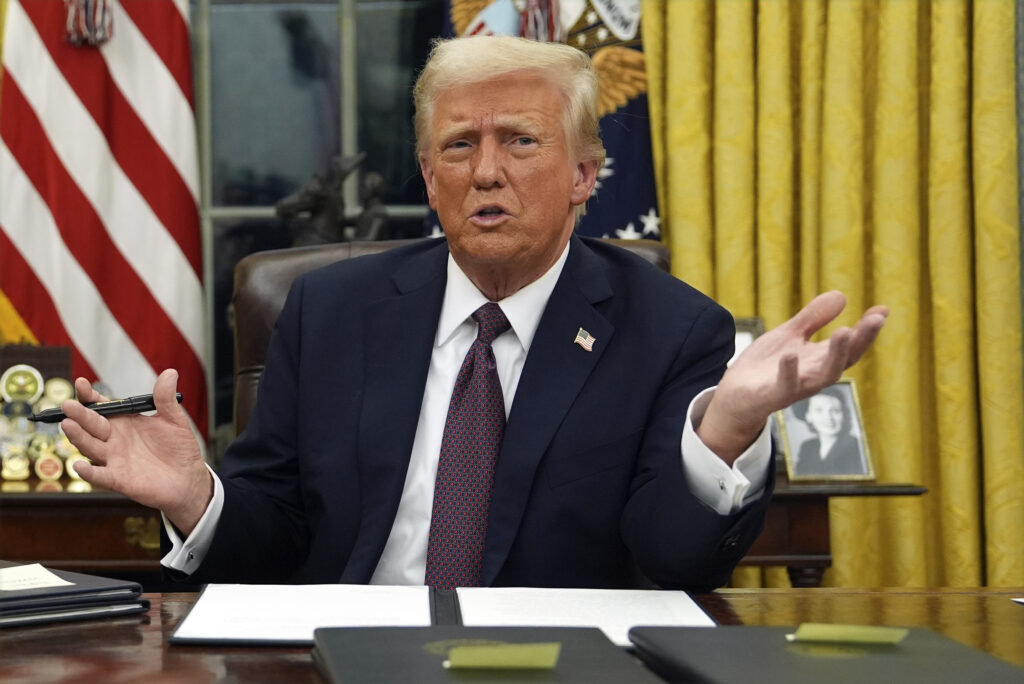Federal Judge Again Blocks Trump Bid to End Birthright Citizenship

A federal judge Thursday again blocked President Donald Trump’s attempt to end birthright citizenship.
District Judge Joseph Laplante’s sweeping ruling is significant, as it comes just days after the Supreme Court curtailed federal judges’ ability to issue nationwide injunctions.
The order from Laplante, an appointee of former President George W. Bush, is not a nationwide injunction but applies to a nationwide class of children whose citizenship would be threatened by the president’s executive order.
The order, signed on Trump’s first day in office, attempts to strip citizenship from those born to parents living in the U.S. illegally or temporarily. It is a direct challenge to the 14th Amendment, which states that everyone born on U.S. territory is a citizen, regardless of their descent.
Laplante certified the class and blocked Trump’s order at the request of immigrant rights advocates who filed a class action lawsuit shortly after the Supreme Court’s ruling on nationwide injunction.
The class is slightly narrower than the one originally sought by plaintiffs, which included the children’s parents.
LaPlante, who certified the class and granted the preliminary injunction from the bench Thursday, said his decision was “not a close call,” according to Reuters, adding that the children would lose citizenship if Trump’s order took effect.
“That’s irreparable harm, citizenship alone,” the judge said. “It is the greatest privilege that exists in the world.”
In a written order released later, LaPlante rejected the Trump administration’s argument that a nationwide class is not appropriate after the Supreme Court’s injunction ruling.
The judge noted that Rule 23, the section of the Federal Rules of Civil Procedure that governs class actions, includes no geographic limitations.
“So long as this court adheres to the requirements of Rule 23, this court does not hesitate to certify a class that may include members in all fifty states,” the judge wrote.
In response to the government’s abnormal request for a “substantial bond” against plaintiffs in the case, LaPlante asked plaintiffs to pay $1 in security for the preliminary injunction.
LaPlante stayed his order for seven days to allow the Trump administration to file appeals.
The Supreme Court’s decision on nationwide injunctions pertained to several previous court rulings against Trump’s birthright citizenship order. The court did not weigh in on the merits of Trump’s order and said it could go into effect 30 days after its ruling.
In his concurring opinion, Justice Brett Kavanaugh indicated that plaintiffs could receive relief akin to nationwide injunctions through class action lawsuits.
However, legal experts recently told Democracy Docket that the Trump administration will have significant leverage to pick apart classes and delay proceedings in lawsuits against Trump’s order.
LaPlante will likely not be the only federal judge to issue an order against Trump’s decree, as several class actions were filed against the Trump administration following SCOTUS’ ruling.
This story has been updated with additional details.